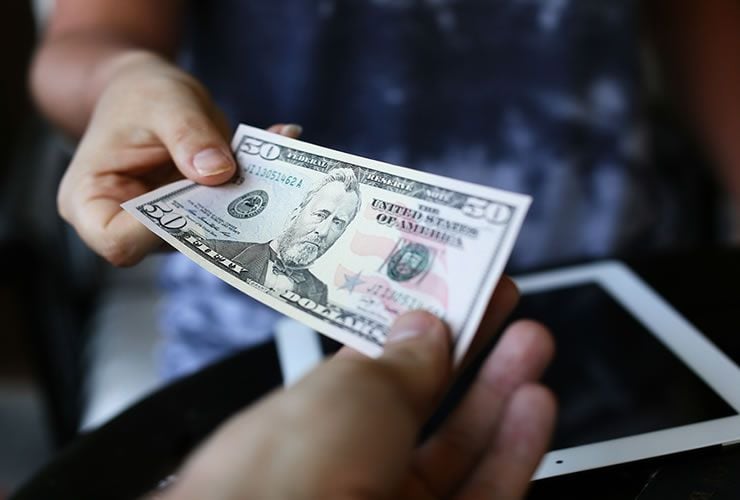"Aggressive" US Dollar Sell-Off Must Fade: GBP/USD Exchange Rate Latest News
- Written by: Gary Howes

Foreign exchange markets might have been unduly harsh on the US Dollar of late and a recovery should not be discounted we are told.
Analysts at JP Morgan say they believe the Dollar is due a rebound.
The call from the world's largest investment bank comes following months of weakness in the Dollar such that at the mid-way point of the year the currency is the worst-performer in the G10 complex.
As a result, the Pound to Dollar exchange rate has over the course of the year risen from just below 1.20 to challenge the ceiling at 1.30.
The decline in the Dollar comes as investors unwind previous expectations for Donald Trump to deliver improved economic growth rates via tax cuts and increased government spending.
At the same time bets on future interest rate rises at the Federal Reserve have been drastically reduced, something that creates downward pressure on the Dollar just as other global central banks begin to embark on their own period of interest rate rises.
The Bank of England is one such example, and we have seen this put upward pressure on the GBP, particularly towards the end of June.
“Even as significant parts of rest of the world has been hawkishly repriced, pushing the broad USD to fresh lows, none of these developments invalidate the thesis that US rates need to more fully price in the Fed,” says Daniel P Hui, an analyst with JP Morgan.
Over the last two weeks, JP Morgan have built up a case as to why they believe the Dollar is due for a rebound, given extreme underpricing of the Fed, the cheapness of the USD below even very modestly priced rates, and the very significant unwind of earlier long USD positioning.
Furthermore, developments in the past few weeks has Hui believing Fed underpricing looks even more inconsistent against global developments.
If anything, now that the rest of the world is looking more comfortable with the idea of a higher interest rate future, the Fed should have more confidence in raising their own rates.
Often there is a danger that running ahead of the pack exposes your currency and cost of borrowing to undue rises.
And, if the United States does have a growth problem that warrant a more cautious Fed, JP Morgan argue the phenomenon will be felt equally by other countries.
“Hence retaining some form of long USD exposure on Fed repricing still makes sense,” says Hui.
Morgan Stanley's house forecasts see the Pound v Dollar exchange rate trading at 1.28 at the end of 2017.
The Euro v Dollar exchange rate is meanwhile forecast at 1.18 as the year turns.





